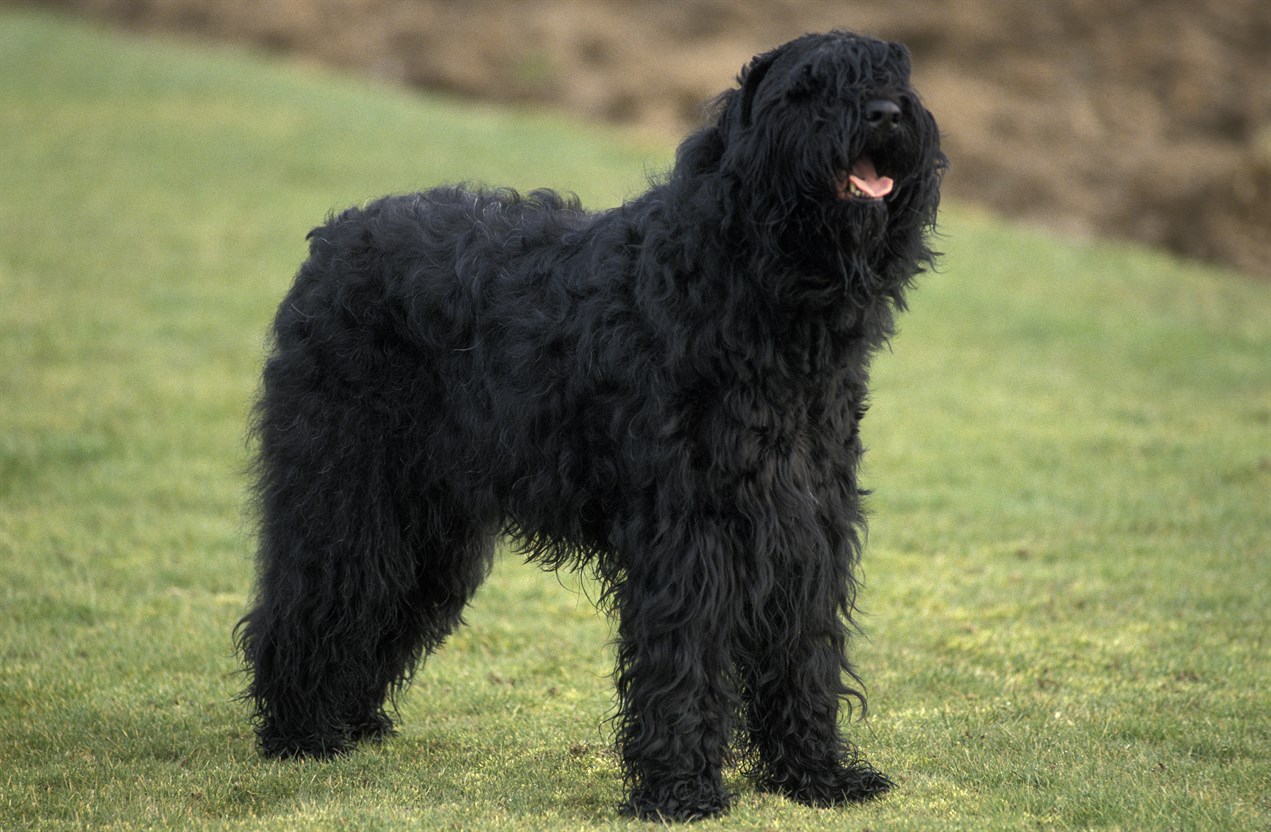Health Issues of the Black Russian Terrier: Awareness and Prevention

Black Russian Terriers (BRTs) are generally a robust and healthy breed, but like all dogs, they can be prone to certain genetic and breed-specific health issues. Responsible breeding and proactive healthcare are essential for addressing and preventing these common health concerns.
Hip Dysplasia
Hip dysplasia is a genetic condition in which the hip joint doesn't develop properly, leading to degeneration and discomfort. Regular vet checkups and responsible breeding practises, including hip evaluations of breeding dogs, can help reduce the risk of hip dysplasia.
Elbow Dysplasia
Elbow dysplasia is a hereditary condition that affects the elbow joint's development, leading to lameness and pain. Breeding dogs should undergo elbow evaluations to reduce the risk of this condition.
Heart Issues
Black Russian Terriers may be prone to certain heart conditions, including aortic stenosis and dilated cardiomyopathy. Regular cardiac evaluations can help identify and manage these issues.
Hypothyroidism
Hypothyroidism is a thyroid disorder that can lead to weight gain, lethargy, and skin problems. Routine blood tests can detect and manage this condition with medication.
Allergies
BRTs may develop skin allergies or food sensitivities, leading to itching, rashes, and ear infections. Identifying and managing allergies may require dietary adjustments and medication.
Bloat (Gastric Dilatation-Volvulus)
Bloat is a life-threatening condition in which the stomach fills with gas and twists on itself. BRTs with deep chests may be more prone to this condition. Feeding smaller, frequent meals and avoiding vigorous exercise after eating can help reduce the risk.
Progressive Retinal Atrophy (PRA)
PRA is an inherited condition that leads to progressive vision loss and, eventually, blindness. Responsible breeders should test breeding dogs for PRA to reduce the risk of passing it on to offspring.
Cataracts
Cataracts are common in ageing BRTs and can cause vision impairment. Regular eye examinations can help detect and manage this condition.
Cancer
Like many breeds, BRTs are susceptible to various types of cancer, including hemangiosarcoma and osteosarcoma. Early detection and prompt treatment are essential for managing cancer.
Osteochondritis Dissecans (OCD)
OCD is a developmental disease that affects the joints, particularly in fast-growing puppies. Providing controlled exercise and a balanced diet can help reduce the risk.
Bacterial Infections
BRTs may be prone to skin and ear infections due to their dense, water-resistant coat. Regular grooming and cleanliness can help prevent these issues.
Arthritis
As they age, BRTs may develop arthritis, especially if they have joint issues. Weight management, joint supplements, and pain management strategies can improve their quality of life.
Spaying and Neutering Considerations
Spaying and neutering at the appropriate age can have an impact on the risk of certain health issues, such as cancer and joint problems. Discuss the timing of these procedures with your veterinarian.
To help ensure your Black Russian Terrier's long-term health, choose a responsible breeder who conducts health screenings on their breeding dogs. Additionally, maintain regular veterinary checkups, provide a balanced diet, and monitor their weight and overall well-being. Early detection and proactive management of health issues can lead to a healthier and longer life for your beloved BRT.
Black Russian Terrier puppies for sale
- Find Black Russian Terrier puppies for sale in ACT
- Find Black Russian Terrier puppies for sale in NSW
- Find Black Russian Terrier puppies for sale in NT
- Find Black Russian Terrier puppies for sale in QLD
- Find Black Russian Terrier puppies for sale in SA
- Find Black Russian Terrier puppies for sale in TAS
- Find Black Russian Terrier puppies for sale in VIC
- Find Black Russian Terrier puppies for sale in WA